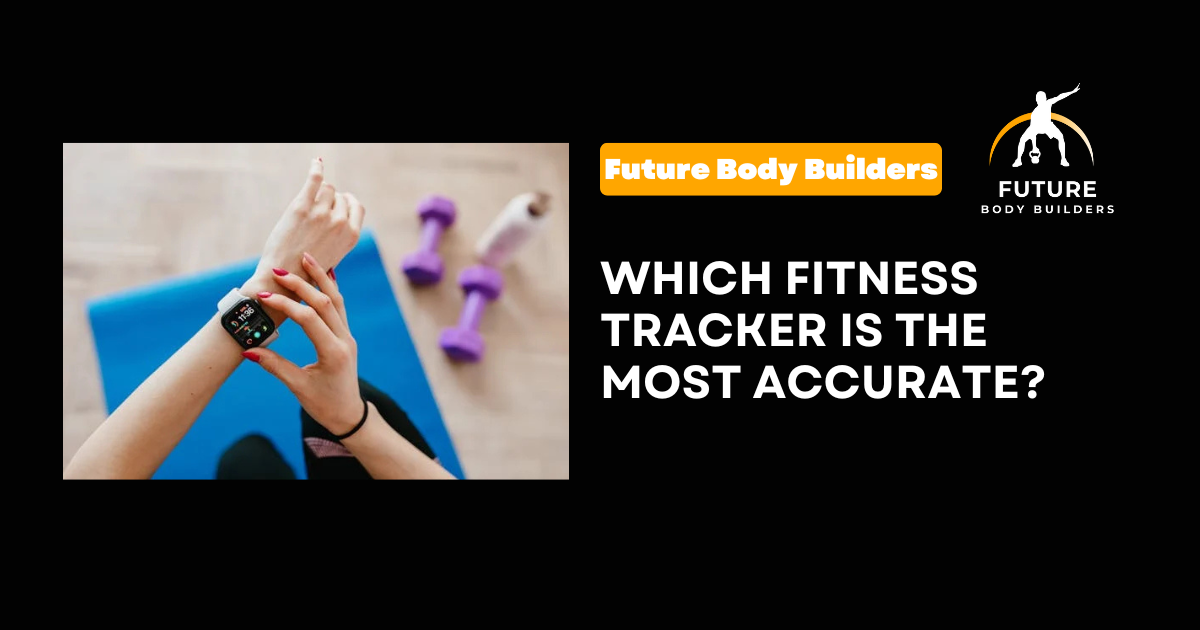Which Fitness Tracker Is the Most Accurate?


Fitness trackers have transformed how we monitor our health and performance. From step counting to heart rate monitoring and even sleep analysis, these devices help users stay accountable and optimize their workouts. But with so many brands on the market, one major question remains: Which fitness tracker is the most accurate?
In this guide, we’ll break down the most precise fitness trackers, explore what influences accuracy, and help you choose the best device for your fitness journey.
Are you interested in getting personalized fitness tips? You can book a free customized fitness consultation with us.
When choosing a fitness tracker, accuracy is key. A tracker that miscounts steps or overestimates calorie burn can mislead users. This can make a significant impact on fitness goals. Reliable data ensures better decision-making regarding workouts, recovery, and overall health.
Fitness tracker accuracy depends on:
Now, let’s examine the most accurate fitness trackers available.
Key Features:
Accuracy:
Amazfit’s advanced BioTracker™ sensor technology ensures precise heart rate and SpO2 readings. Its sleep tracking feature is among the most accurate. This makes it a great all-rounder.
Key Features:
Accuracy:
Garmin is known for industry-leading GPS and fitness tracking. The Venu Sq 2 is highly accurate for running, cycling, and swimming. This makes it ideal for those who train regularly.
Key Features:
Accuracy:
The Oura Ring excels at sleep tracking. It provides detailed data on REM, deep sleep, and recovery. This makes it a top pick for users who prioritize rest and recovery.
Key Features:
Accuracy:
Apple’s high-quality sensors and AI-powered analysis ensure top-tier accuracy for heart rate monitoring and daily activity tracking. However, battery life is a drawback.
Key Features:
Accuracy:
WHOOP is trusted by professional athletes for its detailed recovery and strain analysis. Unlike other trackers, it focuses on long-term performance optimization rather than step counting.
While choosing a high-quality fitness tracker is essential, how you use it also impacts accuracy. Here’s what you need to know:
Wearing your tracker in the wrong position can cause inaccurate readings. For example, some users wear the Apple Watch on their ankle during runs for better step tracking.
Best practices:
Regular updates help improve algorithms for more precise tracking. Some devices allow manual calibration, improving step counting and GPS accuracy.
How to optimize:
Many trackers offer different exercise modes. Selecting the correct one ensures accurate calorie burn and movement tracking.
Even the best fitness tracker can provide misleading data if not used properly. Follow these tips to ensure you’re getting the most out of your device:
Each device excels in different areas, so choosing one depends on your fitness goals and lifestyle.
Finding the most accurate fitness tracker depends on your specific needs. If you want an all-in-one tracker, the Amazfit Active 2 offers top-tier accuracy at a reasonable price. For serious athletes, Garmin Venu Sq 2 and WHOOP 4.0 provide professional-grade tracking. And for iPhone users, the Apple Watch Series 10 is a seamless choice.
The key is not just buying a tracker but using it correctly. Optimize placement, update settings, and sync with health apps for the best fitness tracking experience.
Are you ready to level up your workouts? Explore fitness tips and expert advice on our various platforms.